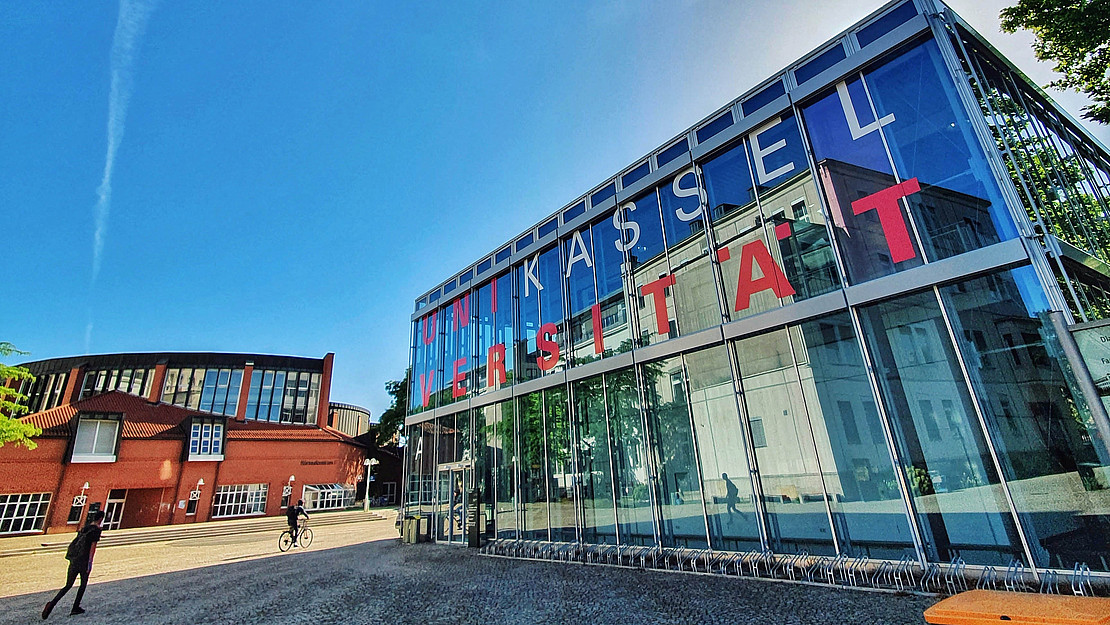This page contains automatically translated content.
Charge Management with Artificial Intelligence: Project SALM
 Image: University of Kassel.
Image: University of Kassel.The project, which is funded by the German Federal Ministry of Education and Research, is developing a self-adaptive management system for charging e-vehicles. To this end, it analyzes energy demand and permissible charging duration for the individual vehicles and thus optimizes the use of the existing charging infrastructure. This control process is supported by artificial intelligence (AI).
The starting point in the SALM project is the increase in electric vehicles and thus the expansion of charging stations in existing networks. This does not only mean the provision of electrical energy, the installation of charging stations of all kinds and the further development of electric vehicles, but it also means that the network infrastructure has to be improved.
E-mobility, with its fluctuating charging behavior and high electrical outputs, presents new challenges. While some drivers need to charge their electric vehicle quickly and with high power, others have more time but need higher energy for a longer distance, for example. This is where the SALM project comes in. The goal is to use artificial intelligence to regulate the individual charging processes in such a way that the overall system consisting of the grid, charging stations and electric vehicles is operated intelligently. In essence, the control unit determines with which charging power the batteries of the individual vehicles are best charged. For this purpose, a "digital twin" is created that emulates the behavior of the charging stations and makes it possible to optimize this control process. The result is an adaptive learning system based on the LCS principle (Learning Classifier Systems). This system can adapt to new situations largely autonomously and combine specifically collected knowledge about charging processes at real charging stations with selectable target parameters.
Prof. Bernhard Sick, Head of the Department of Intelligent Embedded Systems at the University of Kassel is pleased about the approval: "In the SALM project, real-life situations are simulated in order to effectively and efficiently investigate the optimization of charging strategies. Optimizing the charging infrastructure with artificial intelligence is an important contribution towards climate-friendly mobility."
A key feature of SALM is that quality objectives can be set individually with the needs of the individual user in mind. Examples of quality targets include achieving the shortest possible charging time or using electricity with the smallest possible carbon footprint. The number of vehicles that can be served in a given time interval with the existing infrastructure according to their needs is also a quality target. The evaluation of each charging operation allows the operator to assess whether more charging stations are needed and what the requirements are for the supplying electrical network.
In the course of the project, an existing software will be further developed and, above all, extended to include a comprehensive visualization of the quality indicators. Based on this, the advantages of self-optimization through the use of AI will be explored.
Georg Schmitt, representative of the consortium leader Flavia-IT, is convinced: "With this solution, both operators of private industrial networks and public distribution network operators can limit their costs for network expansion through efficient utilization of network capacities."
Prof. Peter Birkner, Managing Director of the House of Energy, also praises the project: "We are very pleased with the interaction of charging infrastructure, electric vehicles, digital twins and artificial intelligence. This is an impressive demonstration of how innovative automation technology combined with infrastructure expansion can advance the energy transition efficiently, effectively and cost-effectively."
Contact Marketing
House of Energy e.V.
Ivonne Müller
Tel +49 561 510 053 25
E-mail: i.mueller[at]house-of-energy[dot]org
Contact person project
Flavia IT Management GmbH
Georg Schmitt
Tel +49 30 9203 8323 42
E-mail: georg.schmitt[at]gridundco[dot]de
The House of Energy e. V. with seat in Kassel understands itself as ?think tank?, which is supported by economics, science, universities, universities and research facilities as well as the hessian federal state government. It works in a transdisciplinary manner and provides conceptual and scientific support for the energy transition in Hesse. As a competence center, communication, coordination and knowledge transfer platform, the House of Energy initiates and supports forward-looking projects with a technological focus. www.house-of-energy.org
Flavia IT Management GmbH
Flavia IT-Management GmbH (FLAVIA IT) is an owner-managed technology company based in Kassel, which implements sophisticated IT projects throughout Germany. Since its foundation in 2001, the company has grown steadily, so that customers of FLAVIA IT can count on the broad know-how of more than 50 employees. FLAVIA IT supports customers in the business areas of individual software development and consulting, system provision in the field of renewable energies and VR data visualization. In the business field Renewable Energies, FLAVIA IT supports customers not only in the provision of the technical architecture, but also in the development of new business models and/or in the establishment of operator structures.
The University of Kassel sees itself as a university where openness, initiative, interdisciplinary and unconventional thinking are desired and encouraged. In the winter semester 2019/20, it had more than 25,000 students. The central campus has therefore been undergoing massive expansion for years, and its architecture and charisma set urban accents in the north of the city. About 300 professorships are organized in eleven departments, including the departments of economics, mechanical engineering and electrical engineering / computer science. www.uni-kassel.de